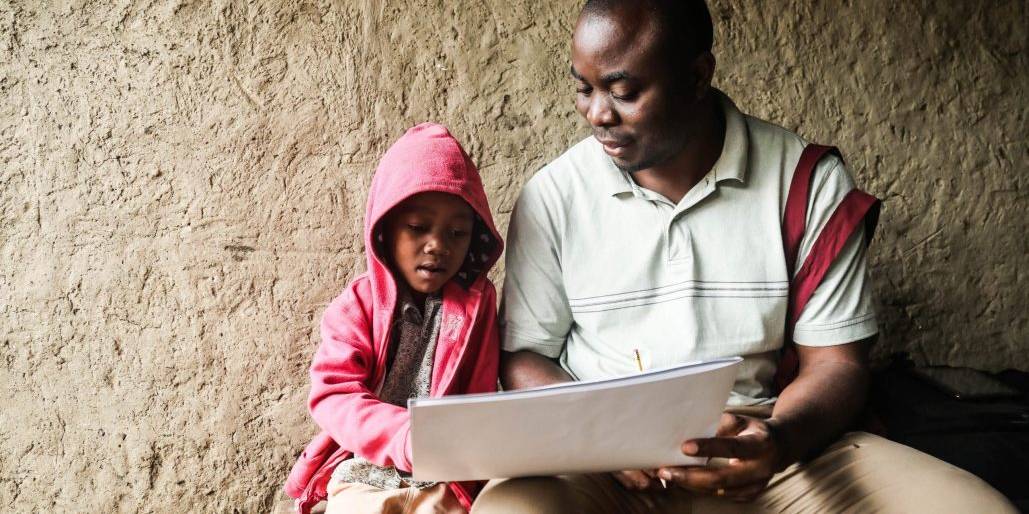
Supporting quality education through citizen-led assessment
Research 31 Jul 2020 7 minute readAs a special member of the PAL Network, the Australian Council for Educational Research's Centre for Global Education Monitoring (ACER-GEM) has been providing technical support to citizen-led assessments since 2014. At the heart of this collaboration is the aim to further develop the methodological strength and rigour of citizen-led assessments as an essential data source for education monitoring.
ACER-GEM is a technical partner of the UNESCO Institute for Statistics (UIS), which has been mandated with monitoring progress towards achieving the United Nations Sustainable Development Goals in Education (SDG 4). ACER-GEM has contributed substantially to the refinement of the UIS Minimum Proficiency Levels that define what learners are expected to demonstrate for achieving SDG 4 indicator 4.1.1 (a) about the proportion of children achieving minimum proficiency in reading and mathematics. In this context, ACER-GEM provided technical support in developing the PAL Network’s International Common Assessment of Numeracy (ICAN) testing tools with the view to broadening the scope of citizen-led assessments in line with the SDG 4 minimum proficiency requirements.
The development of ICAN marks an important milestone in the history of citizen-led assessments. Originating in India in 2005 with the Annual Status of Education Report (ASER), the citizen-led assessment approach has been adopted by several countries across the global South over the past 15 years. Today, the PAL Network joins organisations conducting citizen-led assessments in 14 low and middle-income countries across Africa, Asia and North America. Together, PAL Network’s member organisations bring the status of all children’s learning to the centre of education policy and practice – both in their countries and globally.
What benefits do citizen-led assessments bring to education monitoring?
Citizen-led, household-based assessments are an important data source for education monitoring at the national, regional, and global level towards achieving the United Nations Sustainable Development Goal 4 (SDG 4). A primary indicator of SDG 4 is 'The proportion of children achieving minimum proficiency in reading and mathematics, in grades 2/3.' Citizen-led assessments target these proficiency levels by assessing foundational literacy and numeracy of children and young learners aged 5 to 16 years.
Implemented by local organisations, citizen-led assessments rely on a large network of trained volunteer data collectors who assess children in their homes, thus reaching the most marginalised children, families and communities in remote areas. By using simple tools and easy to understand reports, citizen-led assessments engage parents and community members in discussions about learning and help to foster understanding of the importance of ensuring quality education through civil action.
The UNESCO Institute for Statistics reported that 258.4 million children, adolescents, and youth were out of school in 2018, representing one-sixth of the global population of this age group. These marginalised children and young people are left out of common school-based assessments. Thus, the PAL network’s citizen-led assessments add an essential piece of information that is required to truly monitor progress and to realistically represent the learning levels of all children.
The promise of ICAN
In 2019, the PAL Network began developing common numeracy and literacy assessments. Implemented in one district in each of 13 PAL member countries, the International Common Assessment of Numeracy (ICAN) demonstrates the feasibility of the common assessment approach.
ICAN was developed collaboratively, based on a broader understanding of numeracy and increased scope of the early grades assessment
Before ICAN was introduced, each PAL Network member organisation developed their own assessment tools, based on the ASER model, in alignment with national curricula. A strong focus of the numeracy assessment was on number knowledge. ICAN was developed collaboratively by PAL Network members, drawing on the expertise and experience of each member organisation. An assessment framework was developed that is based on a broader understanding of mathematics and requirements for numeracy in the early grades. Additional strands of basic mathematics were included to increase the scope of the skills assessed with ICAN, encompassing number knowledge, measurement, geometry, and simple statistics in form of data display.
The increased scope of the skills assessed significantly enhances the explanatory power of ICAN to more validly report on children’s basic mathematics competencies. In addition, the skills assessed with ICAN are in line with the UNESCO UIS Minimum Proficiency Levels for SDG 4 indicator 4.1.1 (a), hence providing a valid and reliable option for reporting on the proportion of children achieving minimum proficiency in mathematics in grades 2/3.
ICAN provides a single source version that can be translated into multiple languages and adapted to various local contexts, increasing the reliability of cross-country comparisons
Developed as a single source version, ICAN was translated into 11 languages of PAL member countries. This process is essential to ensure that children are undertaking the same tests, responding to questions that are equivalent in terms of the skills and difficulty. Thus, the resulting learning levels can be compared across countries and languages.
ICAN provides valid and reliable information about the status of all children’s learning for education monitoring at all levels
The increased scope of ICAN and the enhanced comparability across countries provide a sound tool for assessing and understanding the learning levels of marginalised children and young people across PAL member countries.
Provided as open-source, ICAN includes guidelines for sampling and implementation that were developed in adherence with PAL Network’s data quality standards framework. In retaining the core essence of citizen-led assessments, ICAN is easy to implement, report, and understand. Under the umbrella of the PAL Network, member organisations use synergies for constantly enhancing existing capacities of members to gain valid and reliable data on children’s learning levels that are appropriately analysed, interpreted, and disseminated. As such, ICAN has great potential to encourage additional countries to undertake a citizen-led assessment and civil action to improve learning of all children. ■
Further information:
This article was originally pubilshed by the PAL Network and is reproduced here with permission.
